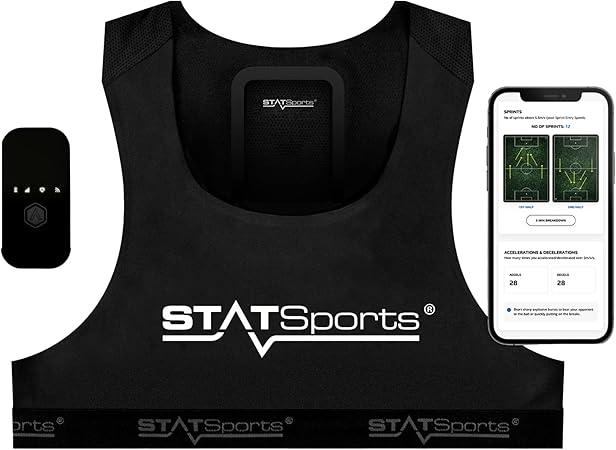Finding the right GPS tracker for your car can feel like navigating a minefield. With so many options flooding the market, boasting a dizzying array of features and price points, it’s easy to get lost. This comprehensive guide will help you cut through the confusion and find the perfect GPS tracker for your needs. We’ll explore key features, compare top contenders, and provide practical advice to ensure you make an informed decision.
Why You Need a GPS Tracker
Before diving into the specifics of different GPS trackers, let’s address the fundamental question: why do you need one? The reasons are varied and depend on your individual circumstances. For many, it’s about security. A GPS tracker can help you recover your vehicle if it’s stolen, providing real-time location data to law enforcement. Beyond theft, trackers offer peace of mind for parents of teen drivers, businesses managing fleets of vehicles, or anyone concerned about unauthorized use of their car. Some trackers even offer advanced features like geofencing (alerts when your vehicle leaves a specified area) and speed alerts.
Key Features to Consider

Not all GPS trackers are created equal. Here are some crucial features to consider when making your choice:
- Accuracy: Look for trackers with high-precision GPS technology, ensuring accurate location tracking even in challenging environments.
- Battery Life: A long battery life is essential, especially if you’re using the tracker for long-term monitoring. Consider trackers with rechargeable batteries and low-power modes.
- Real-time Tracking: This allows you to monitor your vehicle’s location in real-time, providing immediate updates on its whereabouts.
- History Playback: The ability to review your vehicle’s past movements can be crucial in investigating incidents or planning routes.
- Geofencing: Set up virtual boundaries, receiving alerts when your vehicle enters or exits these zones.
- Speed Alerts: Get notifications when your vehicle exceeds a pre-set speed limit.
- Data Connectivity: Consider the type of cellular connection (e.g., GSM, LTE) for reliable data transmission.
- App Compatibility: Ensure the tracker is compatible with your smartphone’s operating system (Android or iOS).
- Ease of Installation: A simple installation process saves you time and hassle.
Top GPS Tracker Models Compared

Let’s compare three popular GPS trackers to illustrate the differences in features and capabilities. Note that specific features and pricing can change, so always check the manufacturer’s website for the most up-to-date information.
| Feature | Tracker A | Tracker B | Tracker C |
|---|---|---|---|
| Accuracy | High, ±5 meters | Medium, ±10 meters | High, ±3 meters |
| Battery Life | 30 days | 15 days | 60 days |
| Real-time Tracking | Yes | Yes | Yes |
| History Playback | Yes, 3 months | Yes, 1 month | Yes, 6 months |
| Geofencing | Yes | Yes | Yes |
| Speed Alerts | Yes | No | Yes |
| Price | $XX | $YY | $ZZ |
(Note: Replace “Tracker A”, “Tracker B”, “Tracker C”, “$XX”, “$YY”, “$ZZ” with actual tracker names and prices.)
Installation and Setup: A Step-by-Step Guide
Installing a GPS tracker is generally straightforward. Most trackers come with detailed instructions. However, here are some general steps to guide you:
- Choose the best location: Find a discreet location in your vehicle that’s hidden from view but still provides a strong GPS signal. Avoid places that are likely to be affected by metal obstructions.
- Prepare the device: Charge the tracker fully before installation.
- Follow the instructions: Carefully read the manufacturer’s instructions for your specific tracker model.
- Connect to the power source: Most trackers require a hardwired connection to your vehicle’s electrical system. Some may use a cigarette lighter adapter.
- Download and activate the app: Download the companion app and register your device following the manufacturer’s instructions.
- Test the tracker: Ensure the tracker is working correctly by checking its location data in the app.
Troubleshooting Common Issues

Even with careful installation, you might encounter some issues. Here’s how to handle some common problems:
- No signal: Check the tracker’s location, ensuring it’s not obstructed by metal. Try restarting the device.
- App connection issues: Ensure your phone has a stable internet connection. Check the app for any updates and restart both the app and your phone.
- Low battery: Charge the tracker or consider replacing the battery if it’s not rechargeable.
Beyond the Basics: Advanced Features and Considerations
Some advanced GPS trackers offer additional features like driver behavior monitoring, allowing you to track driving habits such as hard braking or speeding. Others integrate with other smart home systems, providing a more holistic security solution. Consider your specific needs when evaluating these advanced features. Remember to always check local regulations concerning GPS tracking to ensure compliance with the law.
Conclusion: Choosing the Right GPS Tracker for Your Car

Selecting the best GPS tracker for your car involves careful consideration of your needs and budget. By understanding the key features, comparing different models, and following the installation guidelines, you can make an informed decision that provides you with the security and peace of mind you’re looking for. Don’t hesitate to research further and read customer reviews to gather additional information before making your final choice.